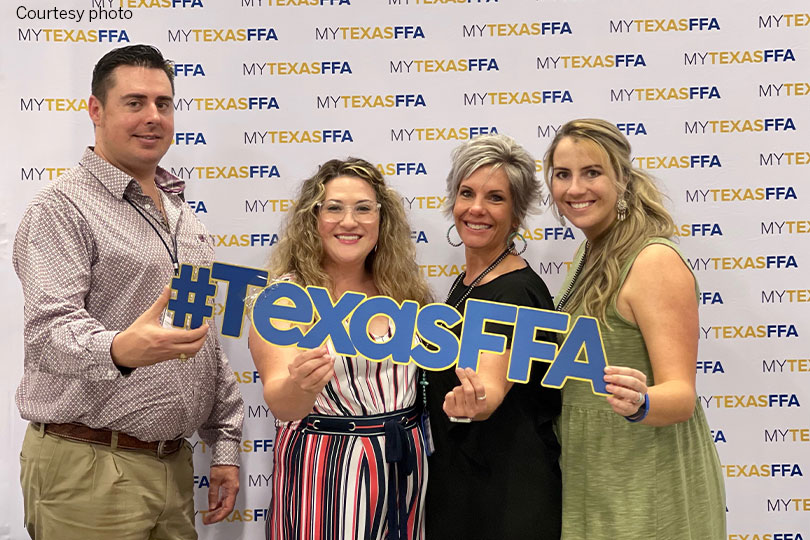By Julie Tomascik
Editor
For 28 years, Melissa Rosenbusch has taught high school agricultural science courses and served as an FFA advisor.
It’s a career and a lifestyle she’s passionate about.
“I love being a teacher,” Rosenbusch said. “I think one of the greatest things about being an ag teacher is what the program affords us to do.”
That’s shaping future leaders and the future of agriculture.
Rosenbusch and agricultural science teachers across the state use the three-circle model that includes classroom instruction, supervised agricultural experiences and FFA to apply agricultural education through hands-on learning.
“We are set up on the three-circle model where we can teach in the classroom, take that to an individualized program for each and every student with a supervised agricultural experience and participate in FFA,” she said.
Supervised agricultural experiences include activities like livestock projects, starting a business or working in production agriculture. Students are guided by teachers like Rosenbusch as they embark on these learning opportunities.
“A lot of our interaction with students is well beyond the 45 minutes that we have them in the classroom,” she said. “It’s outside of school. It’s weekends, and we get to use the tools provided to us through ag education and FFA programs to enhance their learning experience, to build on what they’re interested in and prepare them for careers in college, trade school or whatever it may be.”

For Rosenbusch, helping shape the future of agriculture and future leaders is the most rewarding part of her job.
“I think because of the passion, understanding and love for what we do that our paychecks come in different forms—whether it’s a student learning for the first time how to stand in from of a classroom and say speech or watching them evolve and grow to a confident, very self-assured student,” she said.
And it’s not just about those who enter agricultural careers. Rosenbusch noted it’s important to help shape students who will choose any career path, because they can still serve as an advocate for agriculture.
“While we are teaching them about agriculture, it’s all the other components that we are helping them be successful in whatever career field that they choose. It’s knowing that a child has come through our program, has a better understanding of how agriculture impacts their lives and knowing they learned confidence and life skills,” she said. “We’re training them to be productive citizens and to set high goals of achievement in whatever they choose to do. These are going to be our future leaders.”
Her classes include the principles of ag, food and natural resources. She also teaches a food technology and safety class, which is a pre-requisite for students to go into the ag program’s meat since lab. She also focuses on agricultural business and communications courses.
Over her 28-year career, she’s seen many changes in education and agriculture, including the abundant misinformation about food and agriculture on social media. Through curriculum and FFA opportunities, however, Rosenbusch feels students are equipped to shape the future and sustainability of agriculture.
“I think the future of agriculture is definitely in some good hands,” she said. “We have some outstanding students, and they are eager and aggressive to take on the roles that they will be challenged with.”
Meet another Texas agricultural science teacher, Amanda Spacek, in this article.

